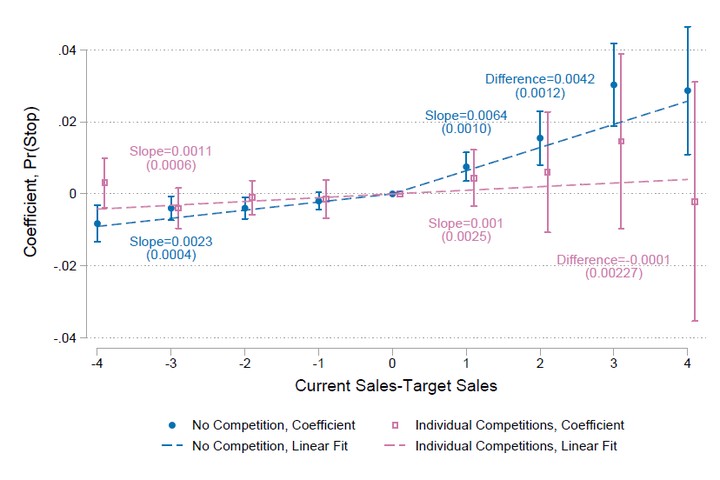Making and Breaking Reference-Dependent Preferences: Evidence from Door-to-Door Sales

Abstract
This paper uses novel, comprehensive data from a pest control sales company to measure worker responses to performance incentives such as piece rates, bonuses, and rank-order tournaments, incorporating the insights from theories of reference dependence. The company’s bonuses around cumulative performance thresholds incentivize workers to set long-run goals, and workers respond by setting daily goals that form the basis of a daily reference. I test for reference dependence in within-day labor supply against candidate references under three separate tournament schemes. Contrary to the predictions of the standard model, labor supply kinks significantly downward at the reference during normal work days in line with the theory of reference dependence and contrary to the standard model of piece rate compensation. However, during individual rank-order tournament periods, there is no such kink, and labor supply is notably flat across the reference. This is attributable to workers anchoring their labor supply to a new reference–their opponent–consistent with tournament theory. Individual rank-order tournaments effectively break reference dependence. I also show that team-based rank-order tournaments and competitions against one’s own past performance differentially affect labor supply in loss and gain domains.